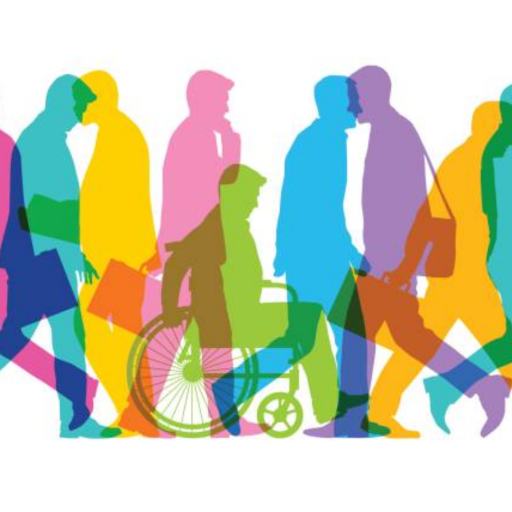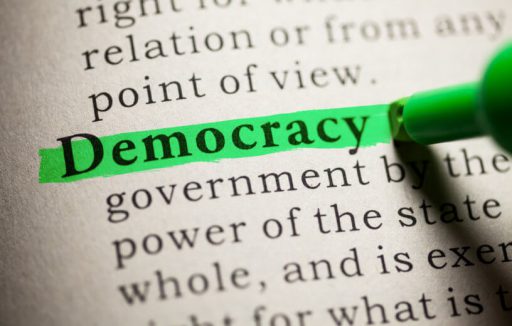October Activity – Equality Walk
OBJECTIVES
- Students will be able to identify about inequalities existing in our society.
- Students will be able to describe the meaning of equality.
OUTCOMES
- Students will be able to describe their understanding of equality in their own words.
SKILLS AND VALUES
Skills - Communication, Critical Thinking
Values- Equality, Empathy
SESSIONS’ OVERVIEW
| S. No. | Session Details | Estimated Time Required |
| 1 | Step 1: Introduction
Step 2: Equality Walk Step 3: Debrief of Activity |
45 Minutes |
MATERIAL REQUIRED
Blank sheet/rough paper to make role name card, pens.
STEPS OF THE ACTIVITY
Session 1: For a 45 min session Step 1-3
Step 1 – Introduction
Time: (10 Min)
- Teacher will tell the students that today we will play a game in groups. Introduce how to play the activity but do not say its outcome in the beginning.
- Teacher will divide the class into 5-6 groups. Each group will represent one role in society. Note: In case of large group size, more groups can be assigned. In case of small group size, the teacher can also get the class to play the game individually or in pairs.
- They will pick one chit of role pre-prepared by the teacher or teacher can randomly assign the roles to the group from the list given in Annexure 1.
- Tell the students that you want them to imagine what it would be like to be that person, understand the statement in context of that person and then decide the move.
- One student from each group will come froward to participate and represent the group.
- Ask the representing students to stand in a line, side by side, and face the teacher. Tell the representing student to write the name of the role on any blank/rough sheet and hold.
Note: Teacher can either organize the activity on ground or ask the students to move the benches on side to create walking space for the representative students.
Step 2 – Equality Walk
Estimated Time (25 Mins)
- Tell the participants, ‘I am about to read out a series of statements. If you think your character displayed on the card would answer yes to the statement, then take a step forward. If you think they would answer no, then stay where you are’.
- Group members can help the representative of the group to help decide to move forward or not.
- Tell the students after reading the statement they will have 30 seconds to decide. Teacher will clap as a cue for students to move forward or stay in their position.
- Read out the statements (atleast 7-8) to the group as given in Annexure 2. (Adapt according to your group and context if needed.)
- After you have finished ask the group to put their character sheet on the floor and step away so that they can see the position of all of the role cards.
- Explain to the students that this exercise was designed to give them an idea of the different socio-economic powers different people have in their lives and how they participate in their communities.
Step 3 – Debrief
Estimated Time (10 Mins)
Ask students the following questions to debrief the activity:
- Who were the groups or roles left out? Why were they left out?
- How did it feel to be in the group that took a step forward?
- How did it feel to be part of a group that stayed at the same place? Was there a time when you wanted to be a part of the group moving forward?
- If we say we are equal society, why was there a big gap between those in front and at the back?
- What does equality mean to you?
Reflection Sheets, Activity Report & Feedback Form
Teachers kindly fill in the feedback form, remind office bearers to fill activity report and remind students also to fill up the reflection sheets.
REFLECTION SHEET (TO BE FILLED BY STUDENTS)
ANNEXURE
Annexure 1 – Role Cards
Roles:
1. Farmer
2. Politician
3. Doctor
4. Sweeper
5. Wheelchair User.
6. Orphan Child
Additional Roles:
7. Middle-aged Mother
8. Police Inspector
9. Vegetable Vendor
10. Successful Businessperson
11. Rag picker
12. Maid
13. Judge
14. Teacher
15. Bus driver
16. Lawyer
Annexure 2 – Statements
Read atleast first 8 statements in this order, others can be taken as per the time available.
- I expect to finish secondary school, or I did finish secondary school.
- I never sleep hungry.
- I feel safe and secure in my community all the time.
- I have freedom from my parents to choose my own hobbies.
- I have to depend on others for my basic needs like food, shelter, movement, etc.
- I get to see and talk to my parents as and when I want.
- I am free to choose any religion I want to follow.
- I can express my opinions in public.
- I have the freedom to choose the profession of my choice.
- I can pay for good hospital treatment for my family.
- I am able to comfortably access and use public services.
- I have a say in local decision making in society.
- I feel harassed/bullied by people around me.
- I am able to afford a smart phone.
- I get treated differently by people because of my physical appearance.




